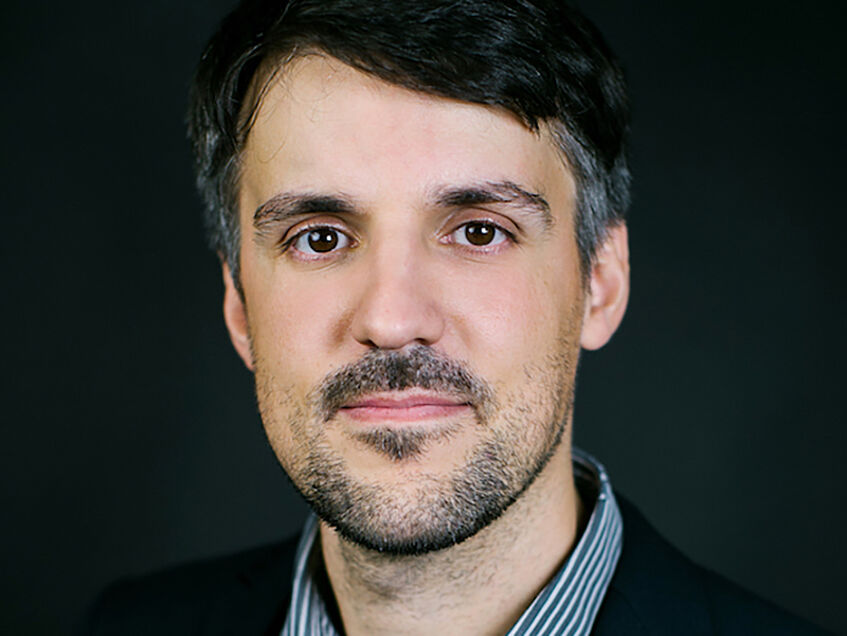Marko Lüftenegger

Marko Lüftenegger
Assistant Professor (Tenure Track), Center for Teacher Education, Faculty of Psychology,
University of Vienna (Since 2017)
University Assistant (Post doc), University of Vienna (2013 – 2017)
Education
2007 – 2012 PhD in Psychology, University of Vienna (AT)
2000 – 2006 Diploma in Psychology, University of Salzburg (AT), Instituto Politécnico de Lisboa (PT),
University of Vienna (AT)
Research Interests
Development of motivation in different domains from adolescence to early adulthood
Context factors in the classroom that facilitate students’ motivation
Well-being of teachers and teacher candidates and identifying protective factors against burn-out
Development and evaluation of training and intervention programs in the school context
Selected Publications
- Bardach, L., Khajavy, G.H., Hamedi, S.M., Schober, B., & Lüftenegger, M. (2018). Student-teacher agreement on classroom goal structures and potential predictors. Teaching and Teacher education, 74, 249-260.
- Khajavy, G.H., Bardach, L., Hamedi, S.M., & Lüftenegger, M. (2018). Broadening the nomological network of classroom goal structures using doubly latent multilevel modeling. Contemporary Educational Psychology, 52, 61-73. Lüftenegger, M., & Chen, A. J. (2017). Conceptual Issues and Assessment of Implicit Theories. Zeitschrift für Psychologie, 225(2), 99-106.
- Lüftenegger, M., & Chen, A. J. (2017). Implicit Theories. International Perspectives From Multiple Domains. Zeitschrift für Psychologie, 225(2), 97-98.
- Lüftenegger, M., Tran, U.S., Bardach, L., Schober, B., & Spiel, C. (2017). Measuring a Classroom Mastery Goal Structure using the TARGET dimensions: Development and validation of a classroom goal structure scale. Zeitschrift für Psychologie, 225(1), 64-75.
- Lüftenegger, M., Finsterwald, M., Klug, J., Bergsmann, E., Schoot, R. van de, Schober, B., & Wagner, P. (2016). Fostering pupils' lifelong learning competencies in the classroom: evaluation of a training programme using a multivariate multilevel growth curve approach. European Journal of Developmental Psychology, 13(6), 719-736. Lüftenegger, M., Klug, J., Harrer, K., Langer, M., Spiel, C., & Schober, B. (2016). Students' Achievement Goals, Learning-Related Emotions and Academic Achievement. Frontiers in Psychology, 7:603.
- Lüftenegger, M. (2015). Lebenslanges Lernen: Relevanz für die Generation Y. In E. Lackner (Hrsg.), Die Generationen Y und Z zwischen Kultur und Wirtschaft (S. 71-82). Innsbruck: Studienverlag.
- Milatz, A., Lüftenegger, M., & Schober, B. (2015). Teachers' relationship closeness with students as a resource for teacher wellbeing: A response surface analytical approach. Frontiers in Psychology, 6:1949.
- Lüftenegger, M., Kollmayer, M., Bergsmann, E., Jöstl, G., Spiel, C., & Schober, B. (2015). Mathematically Gifted Students and High Achievement: The Role of Motivation and Classroom Structure. High Ability Studies, 26, 227-243. Lüftenegger, M., Van de Schoot, R., Schober, B., Finsterwald, M., & Spiel, C. (2014). Promotion of Students' Mastery Goal Orientations: Does TARGET work?. Educational Psychology, 34(4), 451-469.
- Bergsmann, E., Lüftenegger, M., Jöstl, G., Schober, B., & Spiel, C. (2013). The role of classroom structure in fostering students' school functioning: A comprehensive and application-oriented approach. Learning and Individual Differences, 26, 131-138.
- Lüftenegger, M., Schober, B., Van de Schoot, R., Wagner, P., Finsterwald, M., & Spiel, C. (2012). Lifelong Learning as a goal - do autonomy and self-regulation in school result in well prepared pupils? Learning and Instruction, 22, 27-36.
